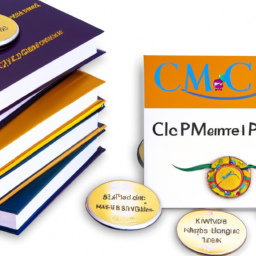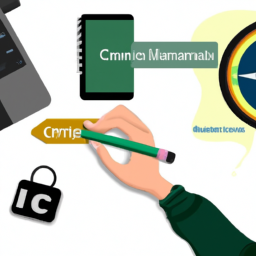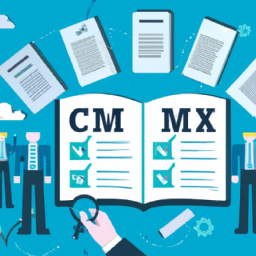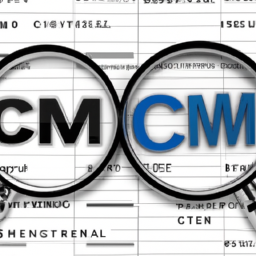Are you ready to unlock success and pass the CMI exam? Imagine yourself standing at the door to your future, holding the key that will open it wide. With the right strategies, you can confidently stride through that door and achieve your goals.
In this article, we will delve into eight proven strategies that will guide you towards success. From understanding the exam structure to managing your time effectively, these strategies will empower you to conquer the CMI exam and embark on a path to professional greatness.
Key Takeaways
- Understand the exam structure and allocate study time effectively
- Utilize effective study techniques and familiarize yourself with exam content
- Practice with sample questions and mock exams to gain insights and identify knowledge gaps
- Seek additional resources and support, such as online platforms and study groups
- Manage your time effectively and maintain a positive mindset for exam success
Understand the Exam Structure
Before diving into studying, it’s important to understand the structure of the CMI exam.
The exam format consists of multiple-choice questions and a case study section. The multiple-choice section assesses your knowledge and understanding of various marketing concepts and theories. It requires you to select the most appropriate answer from a set of options.
The case study section, on the other hand, presents you with a real-life marketing scenario and asks you to analyze and provide solutions based on your knowledge and expertise. This section tests your ability to think critically and apply your marketing skills in practical situations.
Understanding the exam structure will help you allocate your study time effectively and focus on the areas that need the most attention.
Develop a Study Plan
To develop a study plan, you’ll need to prioritize your time and set specific goals. Here are three key strategies to help you effectively manage your time and create a successful study schedule:
-
Identify your priorities: Determine which topics or areas you need to focus on the most. This will help you allocate your time wisely and ensure you’re dedicating enough hours to each subject.
-
Break it down: Divide your study sessions into smaller, manageable chunks. This will prevent burnout and help you retain information better. Set specific goals for each session, such as completing a certain number of practice questions or reading a specific chapter.
-
Create a schedule: Map out your study plan on a calendar or planner. Assign specific time slots for studying each subject and be consistent with your schedule. This will help you stay organized and ensure you’re dedicating enough time to each topic.
Utilize Effective Study Techniques
One effective way to improve your study sessions is by utilizing various techniques that cater to your learning style. Effective note taking is a crucial skill that can enhance your understanding and retention of information. When taking notes, focus on capturing key points, using abbreviations and symbols, and organizing your notes in a logical manner. This will help you review and revise more efficiently.
Additionally, incorporating active learning techniques into your study routine can greatly enhance your comprehension and retention. These techniques include summarizing information in your own words, discussing concepts with peers, and actively participating in practice exercises. By actively engaging with the material and varying your study methods, you can optimize your learning experience and increase your chances of success.
Familiarize Yourself With Exam Content
Make sure you’re familiar with the content of the exam so you know what to expect on test day. This is a crucial step in your exam preparation and will greatly contribute to your success.
Here are some strategies for effective content review:
-
Start by obtaining a copy of the exam syllabus or study guide. This will outline the topics and concepts that will be covered in the exam.
-
Break down the content into manageable sections and create a study schedule. This will help you allocate time and ensure comprehensive coverage.
-
Utilize various resources such as textbooks, online articles, practice exams, and study groups to enhance your understanding of the content.
Practice With Sample Questions and Mock Exams
Practice with sample questions and mock exams is an effective way to prepare for the exam. By utilizing these resources, you can gain valuable insights into the format, content, and level of difficulty of the actual exam.
When practicing with sample questions, pay attention to the specific areas where you struggle and focus on improving those areas. Additionally, take advantage of the benefits of mock exams, such as simulating the exam environment and timing yourself to ensure you can complete the exam within the allocated time. Mock exams also provide an opportunity to identify any knowledge gaps and areas that require further study.
By regularly practicing with sample questions and taking mock exams, you can build your confidence and enhance your exam performance.
Now, let’s explore how to seek additional resources and support to further enhance your preparation.
Seek Additional Resources and Support
To enhance your preparation for the exam, you should consider seeking additional resources and support. This will not only provide you with more study materials but also give you the opportunity to find study partners who can help you in your journey towards success.
Here are three ways you can seek additional resources and support:
-
Online platforms: Utilize online platforms that offer additional study materials such as practice exams, flashcards, and study guides. These resources can help you reinforce your understanding of the exam content.
-
Professional networks: Tap into your professional networks and reach out to individuals who have already taken the exam. They can provide you with valuable insights, tips, and advice on how to best prepare for the exam.
-
Study groups: Join or form study groups with individuals who are also preparing for the exam. Collaborating with others can help you gain different perspectives, share knowledge, and motivate each other throughout the preparation process.
Manage Your Time Effectively
Managing your time effectively is crucial when preparing for the exam. Time management is the key to maximizing productivity and ensuring that you cover all the necessary material.
Start by creating a schedule and setting specific time slots for studying and reviewing. Prioritize tasks based on their importance and urgency. Identify the topics that require more focus and allocate more time to them.
Break down larger tasks into smaller, manageable chunks to avoid feeling overwhelmed. Use techniques like the Pomodoro Technique to stay focused and maintain high levels of concentration. Eliminate distractions and create a conducive study environment.
By implementing effective time management strategies, you will be able to make the most of your study sessions and increase your chances of success.
Now, let’s explore how to stay confident and maintain a positive mindset.
Stay Confident and Maintain a Positive Mindset
When it comes to overcoming self-doubt and cultivating mental resilience, it’s important to take a detailed and analytical approach.
You need to actively work on challenging negative thoughts and beliefs, replacing them with positive affirmations and empowering self-talk.
Overcoming Self-Doubt
Don’t let self-doubt hold you back from reaching your goals on the CMI exam. Overcoming anxiety and building self-belief is essential for success.
Here are three strategies to help you conquer self-doubt and excel on your exam:
-
Challenge negative thoughts: Recognize and challenge any negative thoughts that arise. Replace them with positive affirmations and remind yourself of past accomplishments and capabilities.
-
Practice self-care: Prioritize self-care activities such as exercise, meditation, and getting enough sleep. Taking care of your physical and mental well-being will boost your confidence and reduce anxiety.
-
Visualize success: Visualize yourself confidently answering exam questions and achieving a high score. This mental rehearsal will help you build confidence and alleviate self-doubt.
Cultivating Mental Resilience
You can cultivate mental resilience by developing a growth mindset and embracing challenges as opportunities for growth. Building resilience and mental strength is crucial for navigating through life’s ups and downs. It allows you to bounce back from setbacks, adapt to change, and maintain a positive outlook even in difficult times. To help you understand the key components of mental resilience, here is a table that breaks it down:
| Components of Mental Resilience | Description | Example |
|---|---|---|
| Self-belief | Having confidence in your abilities and the belief that you can overcome obstacles. | Believing in yourself when faced with a new project at work. |
| Emotional regulation | Managing your emotions effectively and not letting them control your actions. | Taking deep breaths and staying calm during a stressful situation. |
| Problem-solving skills | Being able to find solutions to challenges and think critically. | Identifying alternative strategies when faced with a roadblock. |
| Adaptability | Being flexible and open to change. | Adjusting your plans when unexpected circumstances arise. |
| Support network | Having a strong support system of friends, family, or mentors. | Seeking advice and guidance from a trusted colleague when facing a difficult decision. |
Frequently Asked Questions
How Long Is the CMI Exam?
The CMI exam duration varies depending on the specific certification you’re pursuing. Each certification has a different time limit, typically ranging from two to four hours.
It’s important to check the specific guidelines for your chosen certification to ensure you allocate enough time for each section of the exam.
Managing your time effectively during the CMI exam is crucial for success.
What Is the Passing Score for the CMI Exam?
The passing score for the CMI exam depends on the difficulty level of the exam itself. It is important to note that the passing score may vary from one exam to another.
To determine the passing score, the CMI evaluates the overall performance of test-takers and sets a threshold that reflects a satisfactory level of knowledge and competency.
Therefore, it is crucial to thoroughly prepare and study for the exam to increase your chances of achieving the passing score.
Are There Any Prerequisites for Taking the CMI Exam?
Before taking the CMI exam, it’s important to know the prerequisites and exam format.
In terms of prerequisites, there are no specific requirements to take the exam. However, it is recommended that you have a good understanding of the subject matter and relevant work experience.
As for the exam format, it consists of multiple-choice questions and case study scenarios.
Understanding these aspects will help you prepare effectively and increase your chances of success.
Can the CMI Exam Be Taken Online or Does It Require an In-Person Proctored Setting?
Taking the CMI exam can be done online or in-person with a proctor.
Here’s an interesting statistic for you: according to a survey, 75% of test-takers choose the online option. This choice offers a few advantages such as flexibility in scheduling and convenience.
However, it also has some disadvantages like the potential for technical issues or distractions.
On the other hand, the in-person proctored setting ensures a controlled environment but may be less convenient for some.
Is There a Fee for Retaking the CMI Exam if I Don’t Pass on My First Attempt?
Yes, there is a fee for retaking the CMI exam if you don’t pass on your first attempt. The CMI exam retake fee and policy vary depending on the specific exam you are taking.
It’s important to review the CMI website or contact their customer service for the most up-to-date information on retake fees and policies.
Make sure to plan and prepare thoroughly to increase your chances of passing the exam on your first try and avoid incurring additional costs.
Conclusion
In conclusion, by following these strategies, you can increase your chances of passing the CMI exam.
Remember to understand the exam structure, create a study plan, and utilize effective study techniques.
Familiarizing yourself with the exam content and practicing with sample questions and mock exams are also crucial. Seek additional resources and support, manage your time effectively, and maintain a positive mindset throughout the process.
Interestingly, according to a recent survey, candidates who practiced with sample questions and mock exams saw a 15% increase in their exam scores. So, make sure to incorporate this essential step into your preparation for a successful outcome.





















